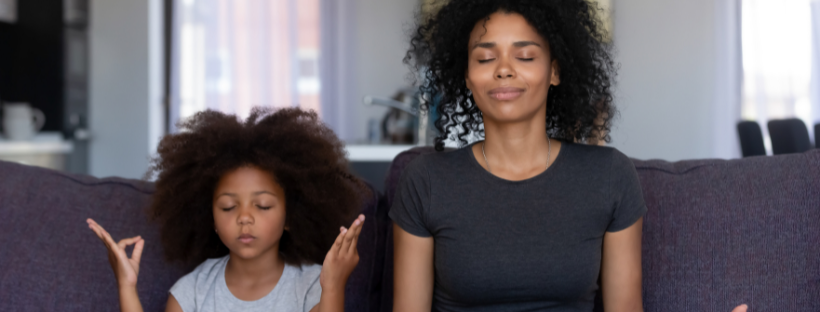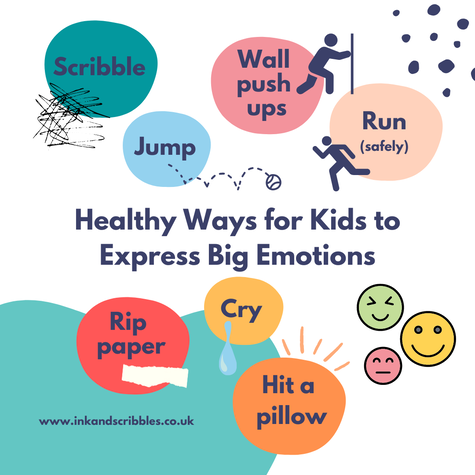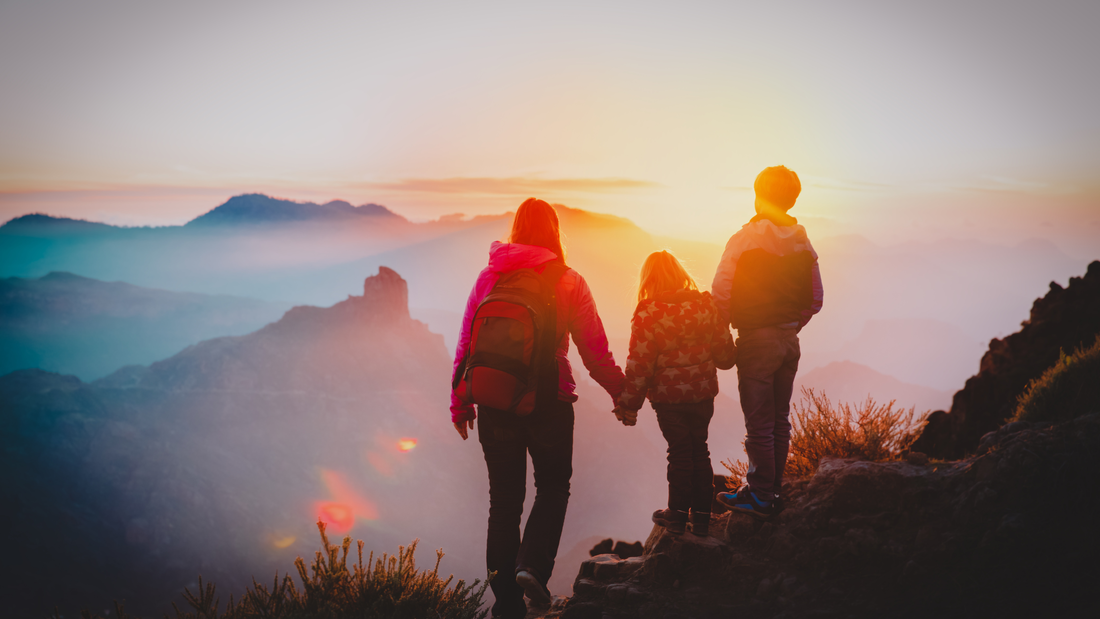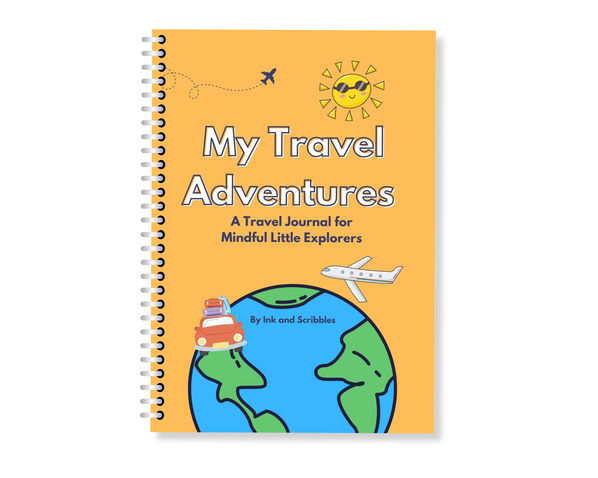|
The benefits of mindfulness and meditation are becoming widely accepted. From stress reduction, to mood enhancement to productivity, to creativity, to clarity of thought ... the list of benefits is compelling. There are also interesting studies that have been done on the positive impact of meditation on children with ADHD. But should we teach meditation to kids? As parents (and educators for that matter), who are under pressure to get things right, we must determine whether teaching meditation to kids is merely another item on an already lengthy to-do list or a valuable tool to enhance their lives. We need to examine the science and ensure that we are not succumbing to society's fleeting trends and expectations. Because we all know how in this digital world, phases and crazes come fast, burn bright and then disappear without a trace! I've done the research for you. So, let's have a look at what I found ... Meditation seems to definitely be a powerful thing. I've even started a little routine myself during my research and have found myself to rather enjoying it. In my experience, mindfulness and meditation present an opportunity for us to find a sense of calm and clarity amidst the chaos. I feel more focused, clearer and refreshed after a meditation. But I've also found that I currently need the help of guided meditations to reach a point that I assume is the meditative state. Calming the mind isn't the easiest thing to do in the noise or speed of our modern world. My conscious, analytical brain is taking some effort to quiet. In my personal experience so far, I feel like I need to learn how to meditate and how to reach the state where the magic happens. It involves the right environment, the time to ensure I'm not interrupted and some help from experienced meditators. When researching meditation, I discovered that changes occur in the brain which are measured in the form of brainwaves. During meditation brainwave frequency slows, usually beginning with Alpha waves as we experience a calming of our nervous system, then into Theta waves as we begin to feel day dreamy and then possibly into the sharp focus associated with gamma waves if you're a more experienced meditator. Theta waves appears to be the main type of brain wave experienced during meditation, which is what you will recognise as daydreaming or being on autopilot. You know that drive you did where you can't remember a chunk of the journey. Eeek! You were probably daydreaming in theta wave range! There's a lot of information out there about what these stages can do to benefit our health and wellbeing from mood shifts to even releasing chemicals that positively boost our physical health. Pretty magical stuff. Us humans are pretty cool. So, what about kids and meditation? Well, curiously, children under 7 are in theta brain wave range a lot. Naturally, they are in a creative, imaginative state which means they experience this brain wave range without needing to sit with their legs crossed and eyes closed. As an aside, this frequency range also means the brain is very susceptible to information. Hello childhood conditioning! That's a topic for another post, but I just wanted to refer to it here, because I think that's an important bit of information for parents to have. Moving on. So, as deep meditation requires such focus and stillness, would that be an appropriate expectation for children? Or would their natural ability to engage in creative, imaginative states of play be meditative enough? Perhaps encouraging mindfulness in the form of observing the small details on a leaf, the stillness of a bedtime story, the relaxation of music, the attention to the breath or the creativity of drawing or writing is where our meditation teaching should begin. A progression ladder of mindful, child friendly activities that help teach them the skills they might need should they wish to meditate more deeply at some point. It's this awareness that we have when we are being mindful that we need to utilise when we try to sit and meditate.
As parents, understanding these 3 can help us lose any 'mum guilt' and feel reassured if our children can't sit cross legged with their thumb and forefinger pressed together whilst repeating a mantra yet.
You can see from these points that some children aren't ready for deeper meditative activity and how mindfulness is so important anyway. We can be mindful anytime. We do meditation. But neither necessarily move big emotions from our body on their own. Combine the provision of mindful opportunities with imaginative play and the space for children to express their emotions (in healthy ways) seems to be a solid strategy for children's emotional wellbeing now and in the future. And maybe one day they'll sit and experience the magic that is meditation too.
0 Comments
Post pandemic travel is most definitely on the cards again for many of us. This summer we're travelling overseas again for the first time since 2019. Whilst preparing to travel with a 6 year old, it reminded me of all the wellbeing benefits that travel has to offer. I'm looking forward to showing him a bit more about the world! When my now 13 year old daughter was young, we travelled quite extensively as well as living overseas for 6 years. I can see the positive impact these experiences had on her. She oozes wanderlust and dreams of own travel adventures that she plans to take when she is old enough. She has spent hours researching travel routes and has a wonderful thirst to see new places and experience different cultures. Climate issues aside, travelling mindfully as a family is a beautiful thing. Here's a few reasons why ...
To get the most out of your mindful travel, you might consider some planning ahead. Of course, travel can be stressful at times so being well prepared will help keep everything running smoothly and enable everyone to enjoy the journey as well as the destination. You can encourage mindfulness whilst travelling through games like 'I spy' or simply engaging your child in some people watching. I always find it an interesting experience to take a moment to step back in busy environments such as airports or train stations and just watch. When you've arrived at your holiday destination, consider asking your child some questions that encourage reflection and observation each day. Some ideas include learning a new word from another language, observing how the place feels different to home, closing eyes and listening to surroundings, conversations around the culture, stargazing and noting what sort of food is on the menu. Of course, if you've chosen a beach holiday, the shore line offers many mindful opportunities just because of the proximity to the water! Hmmm, the sounds of waves lapping at the shore ... Annnnd relax. We know how easy it can be for good intentions to drift, so we've created a printable Mindful Travel Journal for Little Explorers! It provides two weeks of structured journal entries that you and your child can fill in each day that helps them become curious travellers and nurtures global citizenship! You can download My Travel Adventures here: How do you plan to incorporate mindfulness into your family travel?
|
Categories
All
Archives
April 2024
AuthorHey! I'm the founder, creator and voice of Ink and Scribbles. Sharing thoughts on child well-being and parenting that are based on my teaching and parenting experience, and NLP learning. |






 RSS Feed
RSS Feed